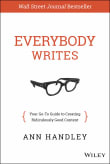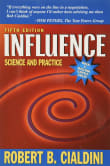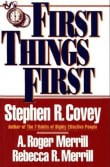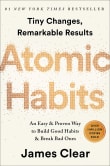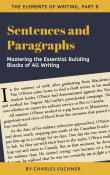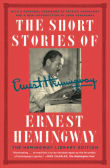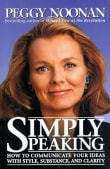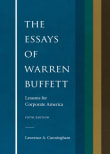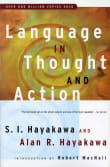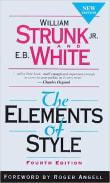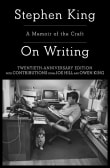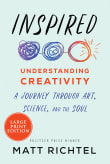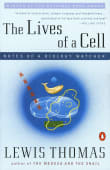On Writing Well
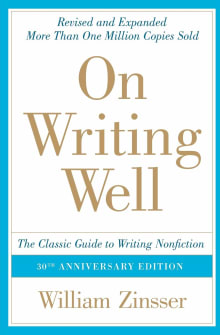
Book description
On Writing Well has been praised for its sound advice, its clarity and the warmth of its style. It is a book for everybody who wants to learn how to write or who needs to do some writing to get through the day, as almost everybody does in the age…
- Coming soon!
Why read it?
7 authors picked On Writing Well as one of their favorite books. Why do they recommend it?

This one didn’t change my life, but it did provide me with a no-nonsense guide to pesky things like conjunctions and clauses, superlatives and synonyms, prepositions and pronouns, and, obviously, alliteration. Ha.
What I liked most about this book is that it isn’t written like a textbook. I read what is widely considered to be the writer's bible, The Elements of Style by William Struck and E.B. White, and considered giving up on my dream of becoming a writer because the book made me feel as if only someone with an Einstein-like intellect could write.
But, as Mr. King wrote,…
From James' list on getting any writer started in the industry.

This book is absolutely clear about what makes good writing, and it really helped me avoid needless sesquipedalianism and circumlocutory prose. Sorry. It helped me avoid using long words and to write directly and to the point.
Zinsser uses lots of examples of good writing, but the whole book is a great example of practicing what you preach. I have a tendency towards fancy words and fancy grammar, which is not good for my readers when I’m trying to teach them something. This book cured me of that more than any other resource.

I know that many doctors, scientists, psychologists, and professionals of all stripes want to give voice to their personal and professional experiences. But here’s the rub: writing is a craft, no different from being an equestrian or an electrician, a musician, an actor, or a teacher. Which means you have to learn the craft. Then keep working at it.
New writers used to be directed to Strunk & White’s paene to grammar and syntax, The Elements of Style. Good for proofreading but not creating. Writing well was becoming an endangered species. One day, a cranky Yankee journalist and university…
From Lloyd's list on books to read if you want to write the best of non-fiction.

I first read this book when I was pursuing my Master’s in Arts Criticism, and found it to be a wonderfully approachable guide to honing the more creative and intangible skills of writing, not just the more tactical things like grammar and punctuation.
The latest edition (from 2016, with the blue cover) is even better than the previous one, since it includes sections on more personal and memoir-style writing, which is going to be key for differentiating from the bots. (At least until the bots start having lived experiences to draw from in their writing.)
From Melanie's list on how writers can avoid being replaced by AI.

If we were to poll readers to determine the most influential writing books of all time, high on the list would be this work, which has sold more than a million copies.
If I had to summarize Zinsser’s advice in three words, it would be “cut the clutter.”
After reading this book, I now assume my third draft, maybe my eleventh draft contains too many words. But how can I cut clutter if I can’t see it? Test every word. You do not have to keep the reader on the “proper path.” The word “path” has the idea of “proper”…
From Roy's list on writing and why they matter.

This is the “classic guide to writing nonficition,” says the cover, and it’s true. Reading it fueled my own motivation to develop practical ways for people to improve their own writing with easily learned techniques, shortcuts, and “insider” tips. Zinsser’s most recent update is the 30th Anniversary Edition, 2006, so don’t expect coverage of contemporary media. The book is journalism-based and later chapters focus on writing articles, but the first few chapters remain golden. “Clear thinking becomes clear writing,” Zinsser says. “Simplify, prune, and strive for order.” His best gift to us: demonstrating how to cut any copy to…
From Natalie's list on writing persuasive messages that win what you want.

From the title you might think this book is about writing, and it is. But it's much more than that. Mr. Zinsser makes the point from the beginning that writing clearly is about thinking clearly, and thinking clearly is about knowing who you are and what you want to say.
From Keith's list on help us know ourselves.
Want books like On Writing Well?
Our community of 12,000+ authors has personally recommended 100 books like On Writing Well.
